After attending the Greensboro MLK breakfast two weeks ago, I got on a plane to Atlanta to attend the first-ever Matthew 25 Summit. The Summit was a gathering of pastors and church members seeking to learn more about how to put into practice the teachings of Jesus to love the least in our communities.
We gathered at New Life Presbyterian Church on the south side of Atlanta for worship, plenary sessions, and workshops. We heard sermons and plenary presentations from Diane Givens Moffet (President and Executive Director of the Presbyterian Mission Agency), Liz Theoharis (community organizer and advocate and director of the Kairos Center), William Yoo (professor of church history at Columbia Theological Seminary), and Mitri Raheb (a Palestinian Lutheran pastor in Bethlehem). Recordings of these inspirational sessions are available here, here, and here. Here are a few of my takeaways from the Matthew 25 Summit:
Our building vs. God’s building: For generations Presbyterians across the United States have built some amazing facilities, including ours here at First Presbyterian Church, Greensboro. We tend to take great pride in our facilities and describe them as “ours.” In one of the workshops I attended, we were encouraged to shift our language from “our buildings” to “God’s buildings.” This small shift emphasizes that while we are the stewards of our buildings, they are ultimately God’s. How we use and care for our buildings should point to God and join in God’s work in our community.
Comfort over discipleship: Since at least the Protestant Reformation, Western Christianity has made faith something we do in our mind. It is a series of teachings with which we agree or disagree, and we tend to join congregations that think and believe like we do. We get comfortable sitting in our usual seat on Sunday mornings and forget that Jesus’ call isn’t to agree to a certain set of teaching but an invitation to follow. Discipleship is an action lived out in the world, and many times the actions Jesus calls us to take us out of our comfort zone. The choice we are constantly facing is are we going to follow the path of comfort or the path of discipleship?
Church must equip people for civic participation: The church is not an isolationist institution but is involved in the life of the community. Therefore, it is our responsibility to learn together how to interpret the teachings of the faith for our life in the community. However, this equipping for civic participation is not for partisanship. The church errs both when it elevates particular political candidates and when it avoids social and political issues. The life and teachings of Jesus continue to reveal God’s vision for the world today.
Prioritize responsibility and repair over guilt and privilege: Conversations about race are often difficult whether they take place in the community or within the church. Part of the issue has been the tendency to focus on guilt when looking at historical injustices. This generally evokes defensiveness and shuts down conversation. The people of today are not guilty of the sin of slavery. However, we are all responsible for the society in which we live. Past sins shape present injustices and throughout the Bible we are instructed to confront injustice.
Emphasis on seeing: In Matthew 25, the people ask Jesus when they had seen him poor, hungry, naked, sick, and in prison? Jesus’ response is that when they took care the marginalized, they took care of Jesus and when they ignored the marginalized, they ignored Jesus. These were good people of faith who did not see. They did not see because they chose not to see; they filtered out the pain and suffering of the world that they did not want to be a part of their lives. This self-limiting vision continues to afflict us today and as followers of Jesus we need to relearn how to look at the world so that we will actually see those we are accustomed to overlooking.

